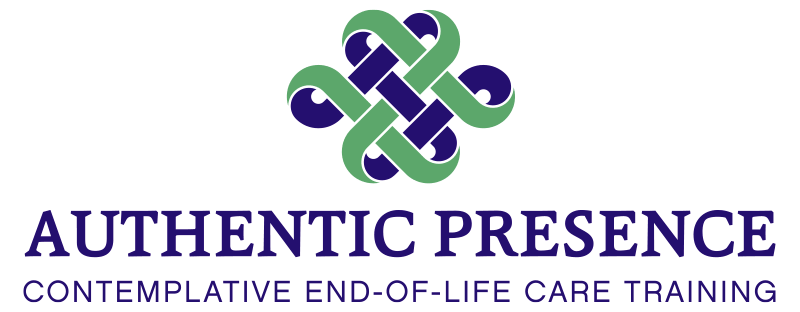A Healing Space
Interview with Kirsten DeLeo
Q: The program is called Authentic Presence. That’s a tall order!
Kirsten: It’s hard to be fully present with compassionate attention, no doubt. Actually, the graduates gave the program the title, Authentic Presence. They came up with it when the faculty asked them what they received from attending a training in contemplative end-of-life care. Authentic Presence, this really captures the essence.
In the moments when we are present, however brief, a healing space opens up. A space that allows the dying person to discover their sources of strength and meaning amid loss and change. A space that also re-connects us, the caregiver, with our motivation and a deep sense of purpose. We are in touch with our deeper nature.
Q: How can we define 'contemplative care'?
A: Contemplative care creates that healing, caring space in a conscious and skillful way. Contemplative care is informed and inspired by the caregiver’s own reflective or meditative practice and understanding. It’s about integrating meditative practices into caregiving — really, into the way we are—into our authentic presence as caregivers, healers, and companions. Contemplative care is not about learning to calm our minds on our meditation cushion over here and then delivering care over there. These things are not divorced from each other. The heart of the training is about how to apply contemplative resources to stay well and work with patients’ needs, with families and with our teams.
Q: Can you say more about the training?
A: Contemplative care empowers you not only to draw from your professional expertise but also to bring your wise and tender human heart to the bedside. There is a power and beauty in the human connection and the spiritual dimension of the human experience, things that have been neglected in modern healthcare. It’s about delivering care in a human, skillful and sustainable way. When we learn to stay present to our own experiences, including our struggles and discomforts as well as our potential for wisdom and love, we begin to make friends with our own humanness and mortality. It then becomes much easier to bear witness and be present to others who suffer deeply. Mindfulness practices, awareness practices and training in compassion — these are all practical tools to help us.
Q: Are the students who attend the training already familiar with mindfulness and meditation? Is this a requirement?
A: No. We encourage people from all walks of life and backgrounds to attend, from those who are brand new to meditation to long-term practitioners. There is an incredible richness and heart opening when caregivers come together. The more we learn to stay centered in our warm-hearted and clear presence, the more we learn to be okay with ourselves. There is a great joy in that. The more I am at peace with my own mind and heart and at ease around death, the more we can bring an atmosphere of clarity, confidence, and kindness into a patient’s room. It will help to disarm their fears. It may even inspire a deep peace within and enable them to find their own life wisdom and inner resources, whatever those may be.

